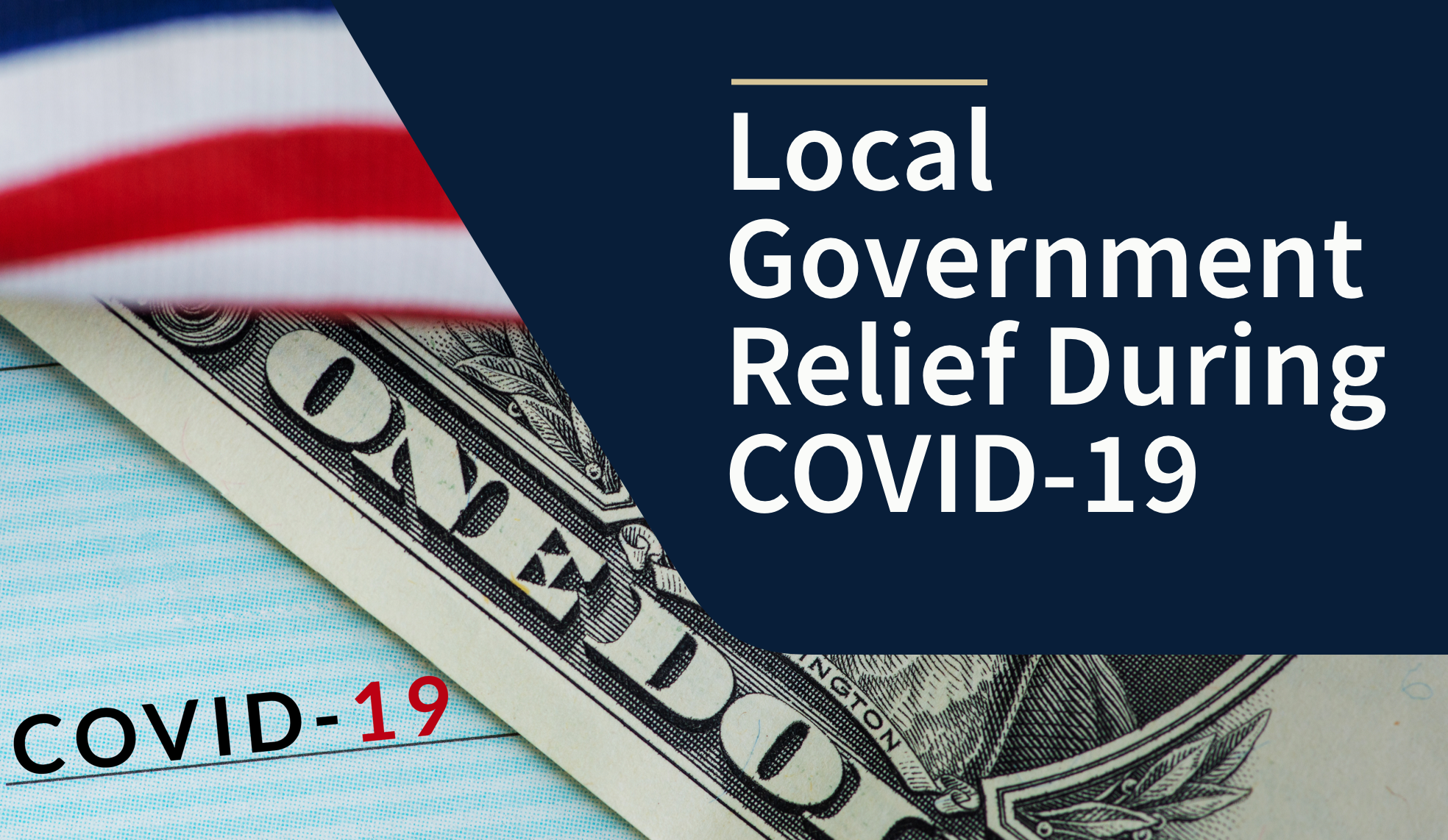Note: April 2021 We first published this piece during the first wave of the pandemic, before any news of a vaccine or substantial federal aid. During this time, Azavar's founder, Jason Perry, remained hopeful that local governments would weather this economic and social storm.
Through programs such as the American Rescue Plan, local governments are receiving support that can turn into short-term stability and long-term strategic investments. Uncertainty is still present, but local governments are more in control of revenue than just a few months ago. However, this piece still has valuable lessons and predictions from a long-time partner to local governments.
We are all trying to make sense of the current moment, personally, socially, and economically. While we are still at the beginning of what the events of 2020 will mean for society at large, we are starting to discern what the core challenges are—even if we don’t quite see a way to navigate them yet.
As the head of a professional-services firm focused on the needs of local governments, I’m challenged to see this time through the eyes of civic leaders. People like my father, who was a city manager in Illinois, as well as our hundreds of clients. This time presents unique opportunities for local governments and I’ve arrived at a three-prong approach as to how these leaders can take on these issues.
A Confluence of Crises
We are living through three crises. Each distinct, yet inextricably linked, requiring a comprehensive approach.
First, the pandemic, an unprecedented global event. Then, the crippling blow of a crushing recession that stands to eclipse the 2008 crash. But perhaps the most significant and striking difference between this time and the most recent economic tumult is the third crisis, what I’ve dubbed the crisis of uncertainty. We simply don’t understand what’s happening, the ultimate outcomes, or how to get a hold of current or future challenges—yet.
While local governments fought valiantly to continue to serve citizens, the crisis of uncertainty is starting to close its grip around municipalities. Local leaders are paralyzed by not knowing when revenues will come back, what sales tax to expect, whether or not schools will be able to reopen safely this year, and how post-pandemic recovery will look. These concerns are on top of the personal challenges impacting all workers’ ability to focus, such as remote work, managing remote learning, lack of childcare, etc.
Lessons from the Past
The last major crisis that hit local government was the economic crisis of 2008—and municipalities had only recently started to recover from dramatically reduced revenue and double-digit staff cuts. Today’s crises should result in similar staffing cuts in order to maintain public safety, health, welfare, infrastructure, and community and economic development. I predict we will be feeling the impact of these cuts for the foreseeable future.
However, the biggest difference between 2008 and 2020 is that today’s moment was extremely sudden; it happened almost overnight. Local governments have not been able to quickly scale back activities to accommodate future revenues. To make matters worse, municipalities were just starting to build back their monetary reserves after the 2008 recession. It is critical that local governments, saddled with additional pandemic-related costs, identify and access all possible sources of funding from regional, national, and non-governmental sources.
A Way to Survive: Three Paths Ahead
As an observer of and partner to local governments for more than two decades, I’ve discerned three potential courses of action which might help municipalities weather the current storm—and prepare for future crises, as well.
Reduce Uncertainty Through Online Revenue Management
After 2008, municipalities really hit the accelerator on the digital outsourcing of collections, and monitoring and management of locally-administered revenues. Digitization offers more certainty about what revenues are being collected. This trend also benefits taxpayer constituents by minimizing risk of late payment and additional fees. Plus, it’s easier for businesses to pay online and manage their accounts versus in-person payments.
Localgov, developed by our team at Azavar, facilitates digital filing and remittance for local governments. When coupled with thorough analysis, our offerings illuminate every source of revenue available to a municipality.
Respect and Respond to Citizen Skepticism
Americans are increasingly distrustful of the federal government, per Pew Research. However, Gallup finds that local leaders still enjoy fairly positive ratings. As the pandemic’s effects continue to steamroll communities, I predict trust in local institutions will take a hit and it is important for civic leaders to anticipate this reasonable reaction. One way to bolster citizen support is to increase transparency around how revenues are allocated. When communities bring residents to the table to decide how to share limited resources, trust is augmented.
Azavar can support these efforts as our team is skilled in delicate issues such as taxpayer education around new or revised ordinances, adoption of new processes, or a reexamination of historical tax remittance.
The Critical Success Factor: Self-Sufficiency
The success of my two previous recommendations hinges on the adoption of this final one: encouraging self-sufficiency among taxpayer constituents that results in more stable and sustainable community revenue.
Local governments must implement intuitive, easy-to-use digital solutions that citizens can use without significant hassle. When taxpaying constituents are able to remit payments more consistently with fewer fees and fines, municipalities can reassign FTEs to higher-value tasks in areas such as economic development, grant administration, etc. However, if the solutions offered are complex, fussy, or don’t include a taxpayer-education program, they will still require significant staff investment and the financial gains to local governments vaporize.
Azavar’s Localgov solution is designed around this very concept. We want taxpayers to benefit from added control over their financial futures as local governments secure more consistent remittance. Our solutions are thoughtfully designed for use by digital natives as well as more residents accustomed to pen-and-paper forms. Plus, our team runs engaging education programs for both staff and residents to eliminate fear, uncertainty, and doubt from the process.
Our partnerships with local governments result in more self-sufficient residents and more reliable revenues for municipalities, rather than relying on state or federal funding.
Staying Nimble to Thrive
To say that municipalities are facing challenges that are rapidly evolving is a gross understatement—yet this is undeniably true. We must protect our local governments, especially as they are asked to take on more and more responsibilities pandemic-related and beyond. Our communities are increasingly diverse, with more complicated needs, and less support from other levels of government.
We are committed to working with local civic leaders to take on the challenges of the pandemic head on. Through intuitive technology, thoughtful support, and a strategy of empowerment, Azavar helps municipalities make progress toward stability.
We are all impacted by the crisis of uncertainty. Economically, politically, socially, this uncertainty is daunting, yet I remain both excited and optimistic that local leaders can thrive. And I am proud that Azavar and Localgov will play a critical role.
Start your journey towards revenue maximization & compliance today.







